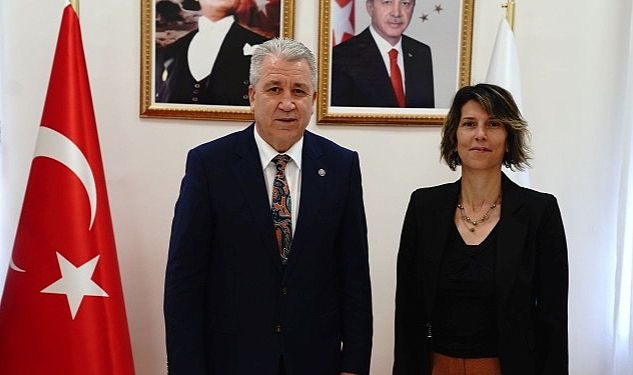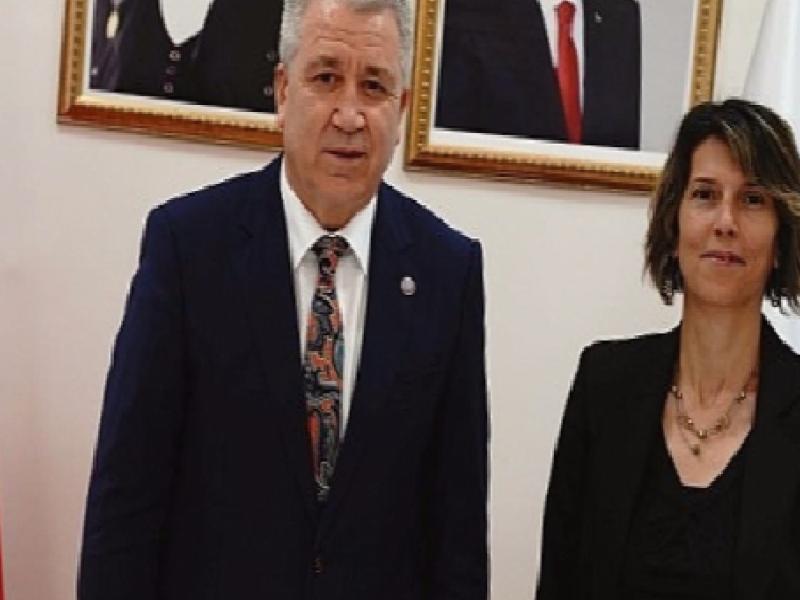
Ege University (EU) continues to contribute to both the world of science and humanity with its qualified academic activities. EÜ Engineering Faculty Bioengineering Department faculty member Prof. Dr. The project titled “3D Biomimetic Breast Cancer Invasion Model for Testing New Therapeutics” carried out by Özlem Yeşil Çeliktaş was supported by the Scientific and Technological Research Council of Turkey (TÜBİTAK) International Cooperation Projects Research Support Group (UPAG) and the Polish National Research and Development Center (NCBR). With the on-chip breast cancer model developed in the project, the different stages of the spread of breast cancer were imitated in the best way, and it was aimed to reduce animal trials.
Pointing out that Ege University is Turkey’s reference center in the field of health, Rector Prof. Dr. Necdet Budak said, “Our university is one of the reference centers of our country in the field of health services, as in many other fields. With the projects developed by our Aegean academicians, we continue to achieve new successes by introducing many alternative diagnosis and treatment methods in health. In this context, our Bioengineering Department faculty member Prof. Dr. With the project carried out by Özlem Yeşil Çeliktaş, a breast cancer model on a chip was produced. The breast cancer model on a chip will serve as a powerful preclinical application tool for evaluating the efficacy of potential therapeutics. Due to his success, Prof. Dr. I congratulate our teacher Yeşil Çeliktaş and his team”.
“Mechanisms of breast cancer should be best understood”
Giving information about breast cancer and research processes, Prof. Dr. Özlem Yeşil Çeliktaş said, “Breast cancer is the most common cancer among women worldwide, but unfortunately it is also one of the cancers that cause the most deaths. The mechanisms of breast cancer, of which there are many different types, must be best understood. Because the result to be obtained will also determine the treatment to be developed against cancer. To understand the complex mechanisms of breast cancer, research needs to be done in vivo, that is, on a whole organism. The most accurate imitation of the disorders that occur in normal mechanical, physical and biochemical functions is only possible with cell-based systems. Recently, 3D cell cultures have been the focus of attention, as the frequently used 2D cell cultures are insufficient to mimic in vivo conditions such as intercellular and cell-matrix interactions.
prof. Dr. Yeşil Çeliktaş said, “In studies aimed at understanding cancer biology and developing drugs, animal experiments that were carried out following cell culture studies have been replaced by alternative systems to in vivo. Many factors such as similarity, cost, time, effectiveness, safety and ethical principles were effective in this development. In the ‘FDA Modernization Act (HR 2565) of 2021), organ systems on a chip and microphysiological systems offered an innovative approach as an alternative to animal trials in determining the efficacy and safety of a drug to be developed against breast cancer. We developed a breast cancer model on a chip within the scope of our project that we produced in connection with the Modernization Law. Thanks to this model, we have provided the best imitation of different stages of spread of breast cancer such as invasion and intravasation. Thus, we aimed to reduce animal trials as much as possible. In addition, the on-chip breast cancer model we developed is a powerful preclinical application tool for evaluating the efficacy and safety of potential therapeutics.”
Source: (BYZHA) – Beyaz News Agency

